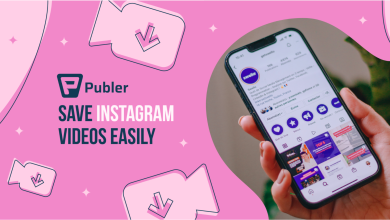For startups building digital products in 2025, one of the earliest and most defining decisions is whether to choose custom software or a SaaS solution. Both approaches have strengths and limitations, and choosing the wrong one can slow growth, inflate costs, and restrict innovation. Today’s founders must evaluate not only cost and speed, but long-term control, scalability, integration potential, and business model alignment.
This is especially true for startups using platforms like Idea2App, which streamline the development process but still require clarity on the foundational approach. Whether you’re building a marketplace, fintech platform, learning app, logistics tool, or internal automation system, your choice between custom software and SaaS sets the tone for your operational flexibility and competitive advantage.
This blog breaks down both models in depth and helps founders choose the one that aligns with their startup’s long-term goals.
1. Understanding the Difference: Custom Software vs SaaS
Before choosing the right fit, startups must understand what each model truly represents.
1.1 What is SaaS?
Software-as-a-Service offers ready-to-use tools hosted in the cloud. Startups subscribe to the software and use it immediately. SaaS is fast, affordable at the start, and eliminates infrastructure management.
Examples include:
Slack for communication
Shopify for eCommerce
HubSpot for marketing
Airtable for databases
Notion for documentation
SaaS works well when the tool aligns perfectly with the business model and requires minimal customisation.
1.2 What is Custom Software?
Custom software is built from scratch or with modular frameworks to match the exact needs of the business. Startups own the code, control the architecture, and can customise every feature without limits.
Platforms like Idea2App accelerate custom software development by using AI automation, rapid prototyping, and pre-built modules.
Custom software is ideal for startups that need unique features, own their IP, or operate in industries where innovation defines success.
2. Speed: SaaS Wins Early, Custom Software Wins Later
Speed is one of the biggest reasons founders initially lean toward SaaS.
2.1 SaaS gives startups instant setup
A SaaS product can be launched in minutes. No development time, no testing cycles, and no infrastructure setup.
This is perfect for:
Early proof-of-concept
Temporary workflows
Internal operations
Low-complexity needs
2.2 Custom software takes longer initially
Custom development requires planning, design, coding, testing, and deployment. While modern frameworks and low-code tools have made this faster, it still cannot match SaaS’s instant availability.
2.3 But custom software wins long-term
Once built, custom software evolves faster and adapts better. Startups can add features immediately, change workflows, and shape the product according to user needs—something SaaS rarely allows.
If the startup is product-driven, speed of innovation matters more than speed of setup.
3. Cost: SaaS Starts Cheaper, Custom Software Saves More Over Time
Startups often believe SaaS is cheaper, but the truth depends on the timeline.
3.1 SaaS has low upfront cost but high lifetime cost
SaaS is subscription-based. Over time—especially with growing team size—the cost multiplies.
Hidden costs include:
User-based pricing
Feature-based add-ons
Storage and usage limits
Integration charges
This becomes expensive as the startup scales.
3.2 Custom software requires higher upfront investment
Custom development may cost more initially, but you pay once. No recurring fees. No forced upgrades. No pricing penalties.
3.3 Custom software becomes cheaper at scale
If the startup plans to scale beyond 1–2 years or serve thousands of users, custom software almost always ends up more economical.
For long-term startups, custom software provides cost stability and predictable budgeting.
4. Flexibility: Custom Software Dominates Completely
Startups thrive on experimentation. SaaS solutions have rigid boundaries.
4.1 SaaS: Limited customisation and rigid workflows
You must adapt your processes to the tool—not the other way around. This can restrict innovation or force startups into inefficient workflows.
4.2 Custom software: Infinite flexibility
Every feature, every UI component, and every workflow can be shaped to match business needs. Startups can innovate without limitations and build unique value that competitors cannot copy.
4.3 Flexibility = competitive edge
If your product is your business—not just a tool—flexibility becomes non-negotiable.
5. Scalability: SaaS Works, But Custom Software Leads
As startups grow, scalability becomes essential for performance and reliability.
Also read: How to build SaaS application?
5.1 SaaS scales—up to a point
Most SaaS tools support increasing users, but limitations arise in:
API access
Speed
Custom workflows
Integration complexity
5.2 Custom software scales without boundaries
Startups control the hosting, cloud architecture, performance engineering, and scaling rules. They can upgrade servers, use microservices, or expand globally without restrictions.
5.3 Scalability is critical for funded or high-growth startups
Any startup expecting large user volumes or complex infrastructure requirements benefits more from custom software.
6. Data Ownership and Security: A Huge Advantage for Custom Software
Data is the most valuable asset for modern startups.
6.1 SaaS vendors own or control your data
While SaaS platforms provide secure environments, the startup still doesn’t own the full system. Sensitive industries like:
Healthcare
Fintech
Legal
Travel-tech
Edtech
cannot risk third-party dependencies.
6.2 Custom software gives full data control
Startups decide the security architecture, encryption standards, access layers, and compliance measures. This reduces risk and increases trust.
6.3 Owning your data strengthens valuation
Investors prefer companies that own their technology and data pipelines.
7. Integration Capabilities: Custom Software Wins Again
Today’s digital products rely heavily on integrations.
7.1 SaaS offers limited integration options
Most SaaS tools integrate only with their approved partners. This limits what startups can build.
7.2 Custom software integrates with anything
Businesses can connect APIs, microservices, third-party tools, analytics pipelines, marketing automation, or even AI models without restrictions.
This flexibility makes custom software future-proof.
8. Innovation Depends on Custom Software
If the startup’s competitive advantage lies in its product, SaaS is never enough.
Uber could not have built using SaaS.
Airbnb could not have built using SaaS.
Spotify, TikTok, Notion, and LinkedIn could not have built using SaaS.
8.1 SaaS cannot support innovative products
If you’re building something unique or disruptive, SaaS limits creativity.
8.2 Custom software gives you control over the product roadmap
Every new insight, customer feedback, or market shift can instantly inspire updates.
Innovation thrives on flexibility.
9. When Should a Startup Choose SaaS?
SaaS is perfect for:
Internal tools
Temporary early-stage workflows
Admin or operational functions
Small teams with simple needs
If your product itself is not dependent on deep customisation, SaaS is efficient.
10. When Should a Startup Choose Custom Software?
Custom software is the right choice when:
You are building a mobile or web app as your main product
You need unique features
You expect to scale
You want full data control
You want long-term cost stability
You plan to integrate AI or automation
For startups using Idea2App, custom software becomes even easier due to rapid prototyping, AI-driven development, and scalable architecture.
Final Thoughts
Choosing between custom software and SaaS is not just a technical decision. It is a business strategy. SaaS is great for speed and internal workflows, but custom software is essential for startups building innovative, scalable, and investor-ready products.
Platforms like Idea2App reduce the risk of custom development by offering accelerated timelines, AI tools, modular architecture, and lower costs—making custom software accessible even to early-stage founders.
In the long run, the right choice depends on your vision. If your product is your business, custom software will always be the stronger foundation. As a leading SaaS app development company, we are here to help you




